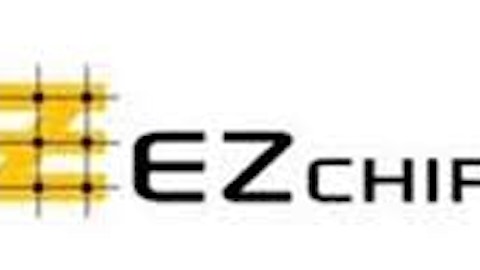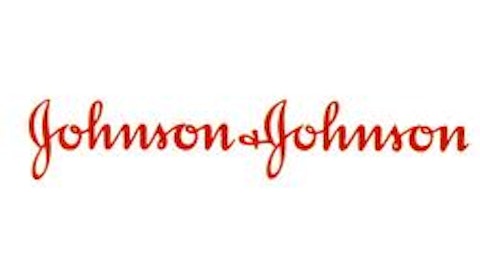You might be surprised which sector appears to be picking up steam as a result of the Affordable Care Act, commonly known as Obamacare.
When Obamacare was signed into law, medical device makers as a whole weren’t happy campers. After all, the health reform legislation introduced an unwelcome 2.3% excise tax. Higher taxes either have to be absorbed by companies, which lowers profits, or passed along to customers through higher prices, which can hurt sales.
There is a part of the medical device industry, though, that Obamacare should help: consumer medical products. Here are a couple of reasons why.
Admission isn’t free
While hospitals hope to receive a carrot from Obamacare in the form of lower numbers of uninsured patients, so far they have mainly received a stick. That stick comes in the form of financial penalties that must be paid if Medicare readmission rates are too high. Hospitals with high readmission rates stand to lose as much as 1% of their Medicare reimbursement this year if patients are readmitted within 30 days. The penalty increases to 3% in 2015.

Research conducted last year by Simione Healthcare Consultants in partnership with the Home Care Association of New York State suggests another effective way of keeping readmission rates down. The study found that the use of home monitoring telehealth programs helped dramatically lower readmissions.
Another study by the Commonwealth Fund reported similar results. The organization’s researchers concluded that use of home monitoring programs reduce hospitalizations and cut costs, while simultaneously improving patient care.
Reports like these seem likely to make medical devices used in home monitoring attractive to hospitals seeking to avoid paying penalties for high readmission rates. With similar penalties in the works for skilled nursing facilities, demand could also increase for medical devices used in tracking conditions of nursing home and rehab patients.
Value hunters
Obamacare certainly generates plenty of controversy. One aspect of the legislation that isn’t as controversial, though, is a focus on transitioning health care from a fee-for-service model to one geared more toward the value of care provided.
Research firm IHS estimates that sales for consumer medical devices could increase by 5% to 9% annually over the next several years. A key driver for this growth, according to IHS, is the push for value-centered care. IHS analyst Roeen Roashan stated that “home monitoring will play an important role in increasing the quality of health care and decreasing the costs.”
This makes a lot of sense if you think about it. If medical professionals can keep tabs on patients while they’re at home and take appropriate actions as needed, those patients are less likely to develop severe — and costly — complications. Remote monitoring could be used to not only lower hospital readmission rates as discussed earlier but could also help physicians know when a patient should be hospitalized more quickly to prevent conditions from worsening.
Getting a boost?
How can investors profit from increased use of consumer medical devices, particularly those that are part of home monitoring solutions? There are many smaller companies in this market that aren’t publicly traded, but several investing opportunities exist as well.
Cardiocom stands out as one of the leaders in telehealth. The company began marketing telehealth devices back in 1999 and has received the Frost & Sullivan award for best remote patient monitoring enabling technology. Until recently, Cardiocom wasn’t an alternative for investors. However, large medical device maker Medtronic, Inc. (NYSE:MDT) acquired the company in August. Medtronic appears to have overcome headwinds related to the new Obamacare tax. Shares are up more than 28% year-to-date.
Another potential play is Johnson & Johnson (NYSE:JNJ). J&J is known primarily for its broad array of consumer health products, prescription medications, and medical devices for clinical professionals. However, the company’s LifeScan business unit claims the blood glucose home monitoring system that’s most recommended by endocrinologists and primary care physicians.
It’s not actually a consumer medical device company, but QUALCOMM, Inc. (NASDAQ:QCOM) should benefit from the trend in use of home monitoring products. Qualcomm Life’s 2Net platform connects consumer medical devices from many leading vendors with back-end systems. The company’s products also include HealthyCircles, a “care orchestration engine” that helps medical professionals manage patient care remotely.
Cisco Systems, Inc. (NASDAQ:CSCO) is another pick that isn’t truly a medical device maker but could still piggyback off the underlying drivers behind the growth of home monitoring. The big technology company’s Telepresence video conferencing product should see strong growth as the telemedicine video telecommunications market picks up steam over the next several years.
Keep in mind that all of these companies have other parts of their business models that could negate any wins scored from increased use of consumer medical devices. There’s also the possibility that the growth of home monitoring and use of consumer devices might not take off as quickly as many expect. Even with these caveats, though, these trends seem quite likely to gain traction. And at least part of the thanks just might be owed to a seemingly unlikely benefactor — Obamacare.
The article 1 Sector Getting a Boost From Obamacare originally appeared on Fool.com.
Fool contributor Keith Speights has no position in any stocks mentioned. The Motley Fool recommends Cisco Systems and Johnson & Johnson. The Motley Fool owns shares of Johnson & Johnson, Medtronic, and Qualcomm.
Copyright © 1995 – 2013 The Motley Fool, LLC. All rights reserved. The Motley Fool has a disclosure policy.





